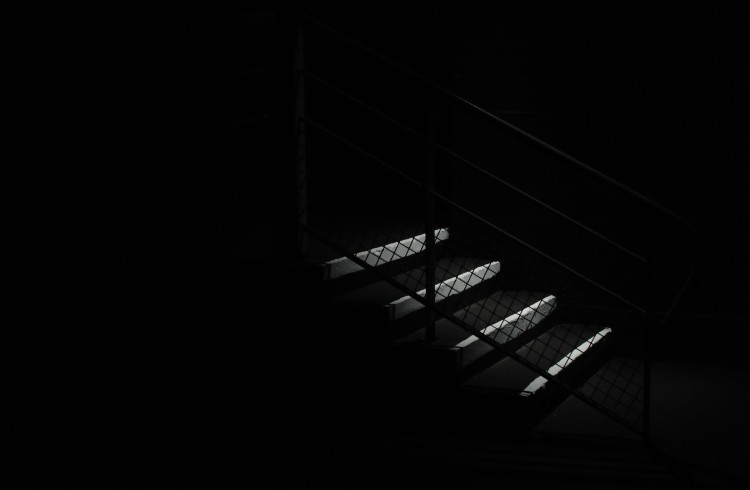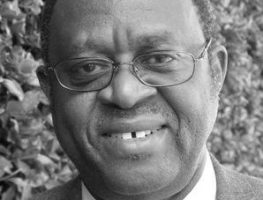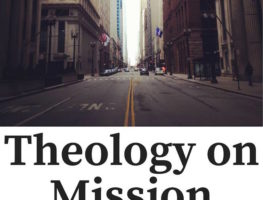I’ve lived in the US for 23 years now and I’ve found that it’s hard to share the gospel with Americans.
There’s an extra step, before you can say “Jesus is the answer.” First you have to say “There’s a problem.” People don’t like problems.
I learned this on a visit to Portland where I found myself, for the first time ever, wanting to preach on the streets. Although I was there for fun, the street sermon would not stop composing itself in my head. It was all about brokenness and defeat and the hope that grows from it. I imagined myself, dressed in colorful rags, doing a kind of street-preacher performance art, confessing my own weakness and meeting others in their weakness. Portland lives in the shadow of a soaring mountain and something about their diversity, embracing of human limitation, appreciation for nature made me see that my preaching in Portland would not require an extra step.
Why, when I live and minister in Cincinnati, did I long to preach to the people of Portland?
Where I live, in the midwest, the land does not overwhelm. It lies flat and feeds us, year after year, pliant to our desires. There are no mountains taunting us with their invincibility, no oceans that boast their wideness, no beasts that threaten to devour us, no drought that stands defiant to our hunger.
Where I live, there is easy access to cheap food, cheap pain relief, comfort and convenience on every corner.
Where I live, it’s possible to believe that the rest of the world and all its poverty and all its war are a long way off, and that our borders and our military will always keep it that way.
Where I live, human intelligence, wealth and industry has solved all of humanity’s problems. And if a new problem rears its ugly head, we just have to spend a little more, work a little harder.
Preaching the gospel that God has come down to earth, to restore small, broken humans has no place when humans don’t feel small or broken. So, to share the Good News here, first we have to be bearers of bad news. There’s an extra step in our work. And most people will not thank you for it. Often, when folks around here hear there’s a problem, they respond as strong and comfortable people respond: We don’t have to have problems. Our intelligence and wealth and industry have solved every problem until now. We can do it again.
Sadly, the Church is often the most guilty of this reaction to human smallness.
And so, when comfortable, powerful Americans are convinced that there is a problem, there then has to be a counseling program: “God is not dead. God has not forsaken us. Scripture has always acknowledged this truth that human life is frail and that we are not in control. This is the way the world has always been and it will be okay.” And there has to be a re-education program: “Look at your unconscious habits of control and comfort. Are there other options? What would it look like to embrace smallness and fight the urge to dominate?”
But there are still places here that get it.
When I’m with my friends with mental and physical illness, the extra step is not necessary. Looping thoughts and weary bodies make human need painfully close.
When I’m with my friends in poverty, the extra step is not necessary. Hoping each day for a meal and a warm bed free of bed-bugs makes human limitation always present.
When I’m with my friends in recovery, the extra step is not necessary. Fighting hungers every moment makes weakness a lifestyle.
When I’m with the marginalized, the extra step is not necessary. Living on the edge of culture, without a voice, keeps powerlessness always apparent.
When I’m with artists, the extra step is not necessary. Being overwhelmed by both darkness and beauty, being wrapped up in a creative process beyond anything you could have made yourself, you know your power is not enough.
When I’m with those who live in the inner city, the extra step is not necessary. The diversity of perspectives and lifestyles is a constant reminder that sharing the Gospel will not come with an easy answer or a soulless tract or a quick-fix church program.
When I’m with those who know nature, the extra step is not necessary. A gardner’s reliance upon rain, an expectant mother’s submission to creative forces within her, a hiker’s appreciation for adventure keep them always aware of their own smallness.
When I’m with (small) children, before they are burdened with the responsibility to look strong, the extra step is not necessary. For them, smallness is as normal as breathing and they are not only okay with it, they find a way to rejoice in it.
And so, I find hope in the small places of this big country. If we look for what God is doing in this place, it’s tempting to look to the suburbs, to the mega-churches, to the big Christian conferences. But if we want to watch where God is revealing himself, we should look to those who know they are small, where human hearts are longing for him and unashamed to cry, “We Need You!”
There we will see the uncomplicated unfolding of the Good News of God’s power in weakness.







Missio Alliance Comment Policy
The Missio Alliance Writing Collectives exist as a ministry of writing to resource theological practitioners for mission. From our Leading Voices to our regular Writing Team and those invited to publish with us as Community Voices, we are creating a space for thoughtful engagement of critical issues and questions facing the North American Church in God’s mission. This sort of thoughtful engagement is something that we seek to engender not only in our publishing, but in conversations that unfold as a result in the comment section of our articles.
Unfortunately, because of the relational distance introduced by online communication, “thoughtful engagement” and “comment sections” seldom go hand in hand. At the same time, censorship of comments by those who disagree with points made by authors, whose anger or limited perspective taints their words, or who simply feel the need to express their own opinion on a topic without any meaningful engagement with the article or comment in question can mask an important window into the true state of Christian discourse. As such, Missio Alliance sets forth the following suggestions for those who wish to engage in conversation around our writing:
1. Seek to understand the author’s intent.
If you disagree with something the an author said, consider framing your response as, “I hear you as saying _________. Am I understanding you correctly? If so, here’s why I disagree. _____________.
2. Seek to make your own voice heard.
We deeply desire and value the voice and perspective of our readers. However you may react to an article we publish or a fellow commenter, we encourage you to set forth that reaction is the most constructive way possible. Use your voice and perspective to move conversation forward rather than shut it down.
3. Share your story.
One of our favorite tenants is that “an enemy is someone whose story we haven’t heard.” Very often disagreements and rants are the result of people talking past rather than to one another. Everyone’s perspective is intimately bound up with their own stories – their contexts and experiences. We encourage you to couch your comments in whatever aspect of your own story might help others understand where you are coming from.
In view of those suggestions for shaping conversation on our site and in an effort to curate a hospitable space of open conversation, Missio Alliance may delete comments and/or ban users who show no regard for constructive engagement, especially those whose comments are easily construed as trolling, threatening, or abusive.